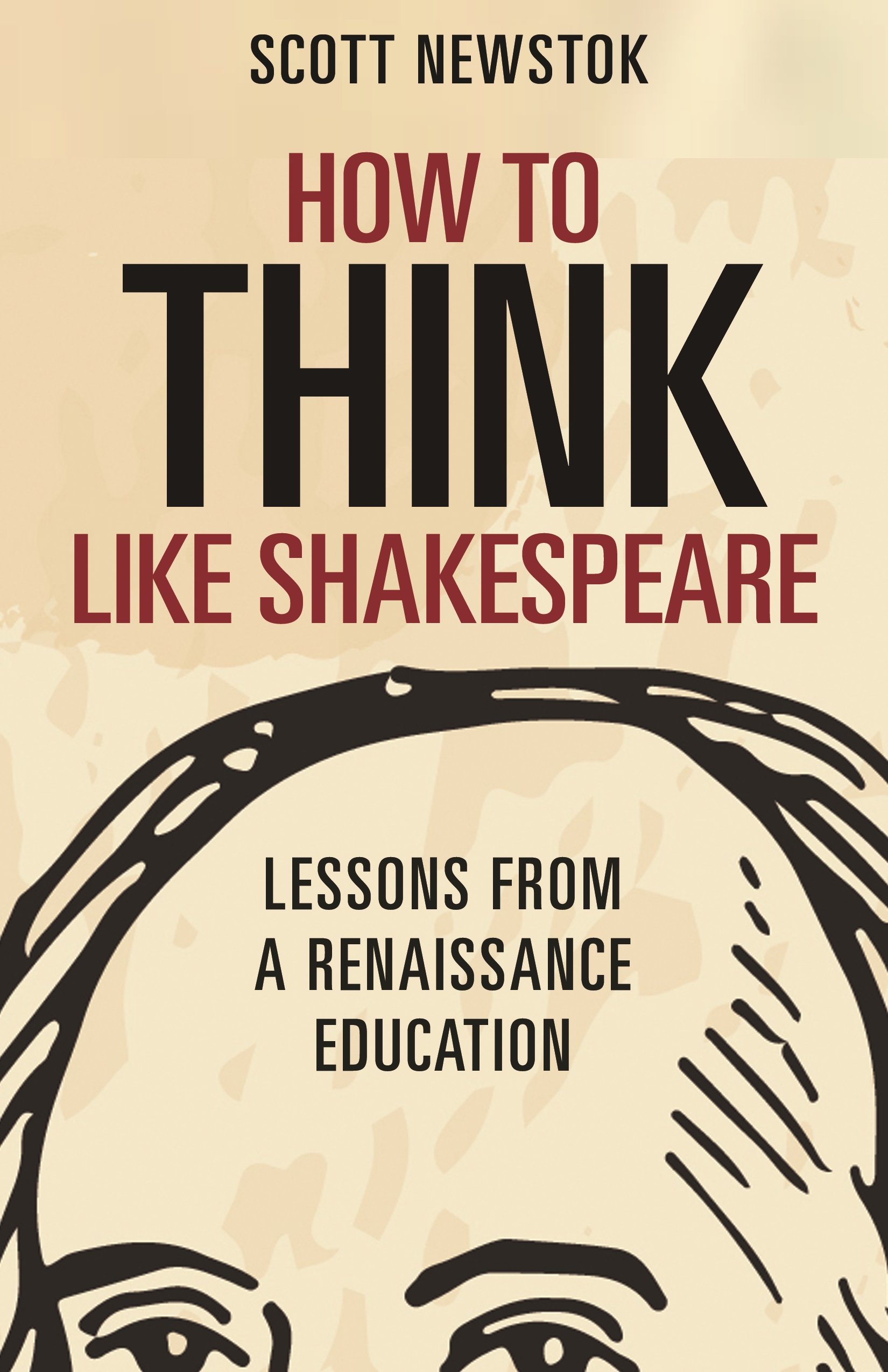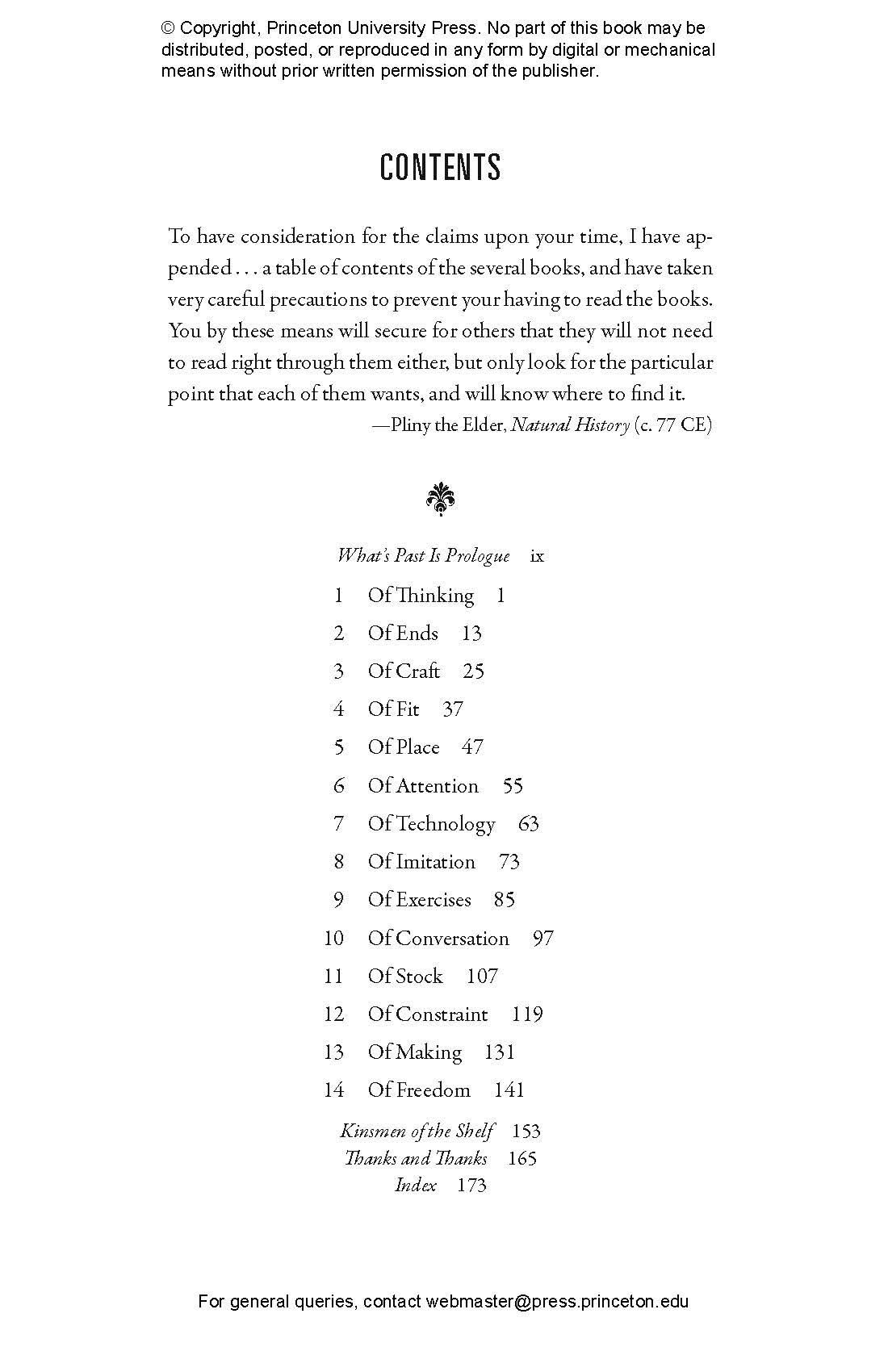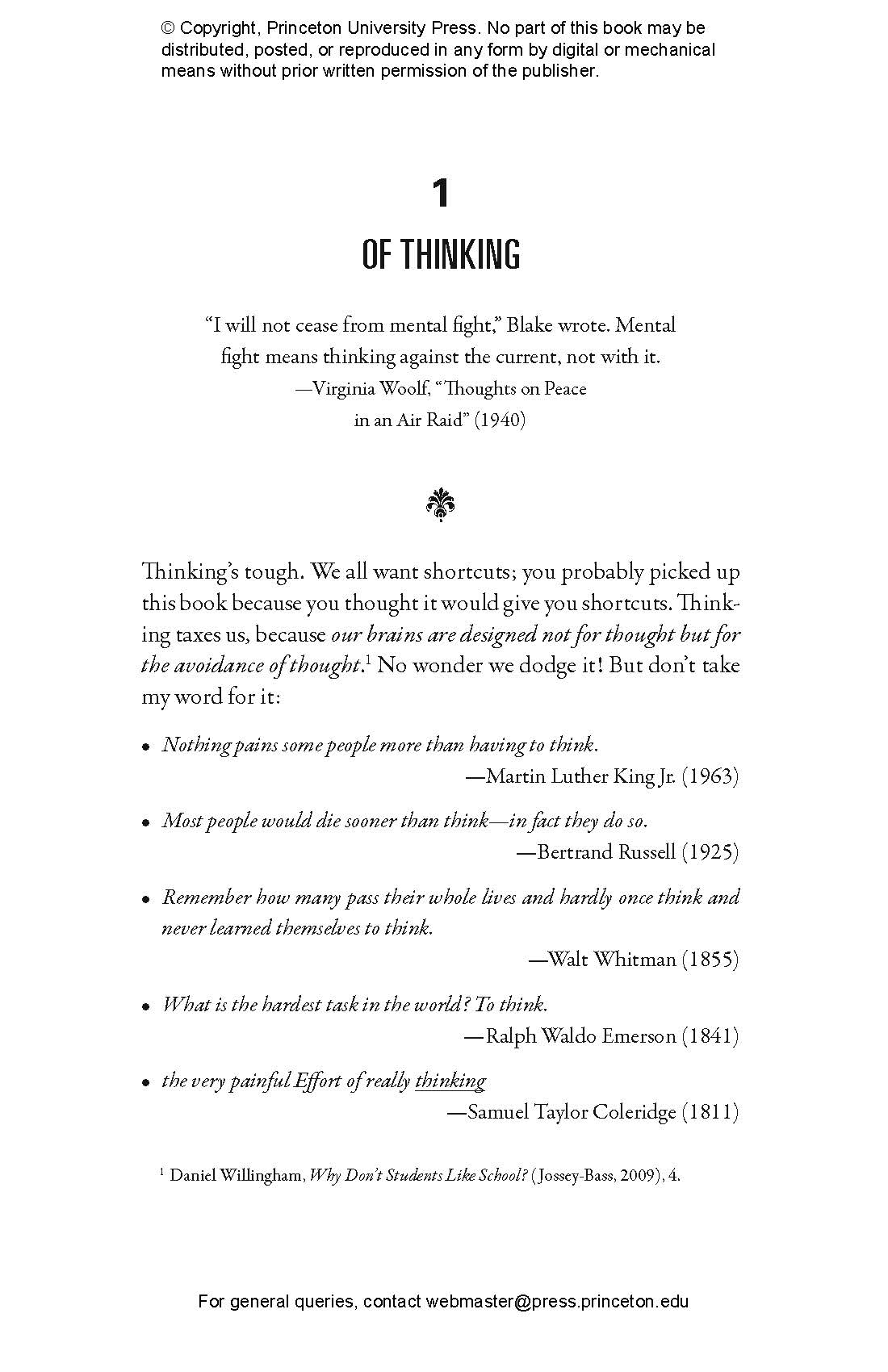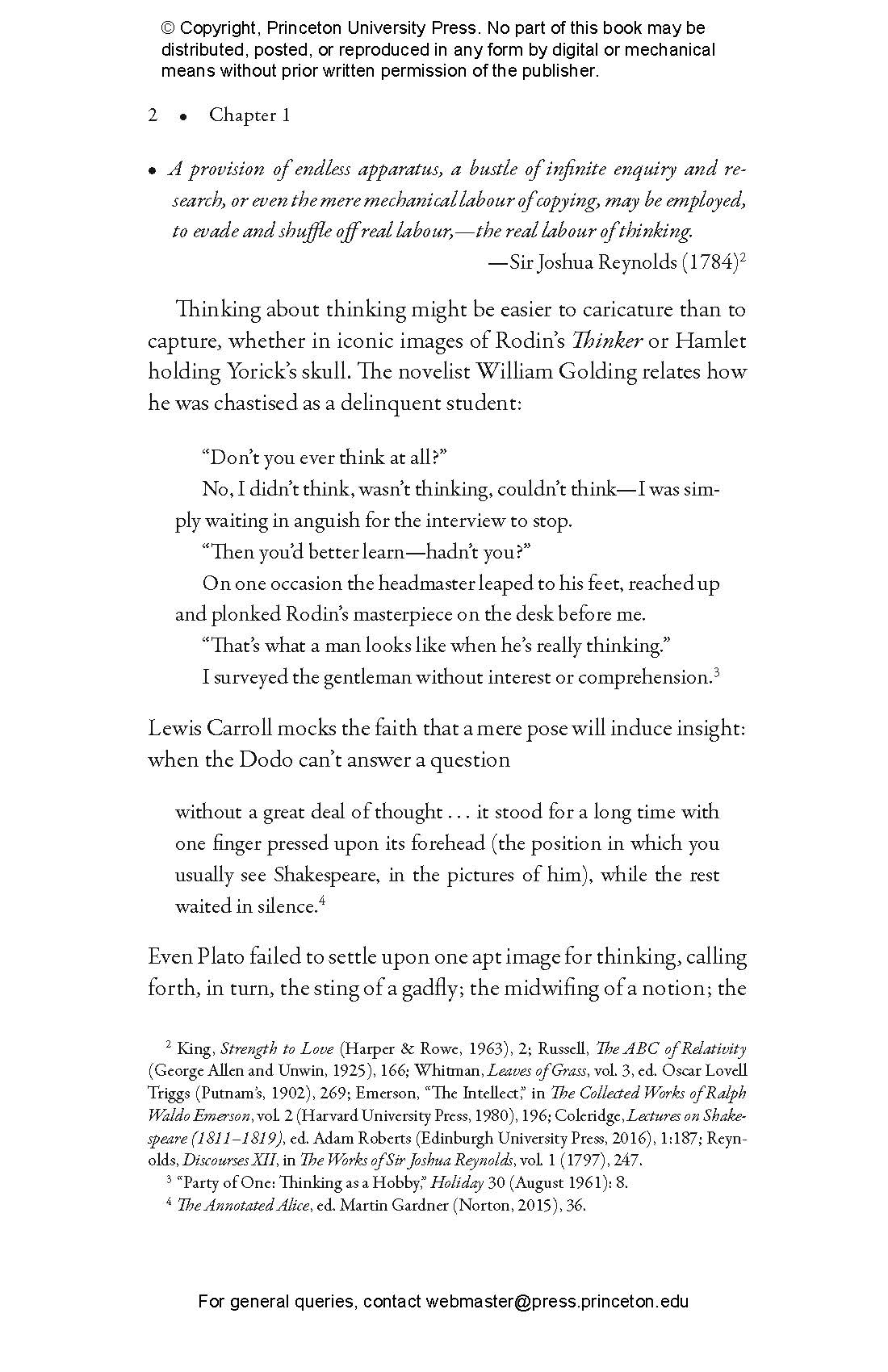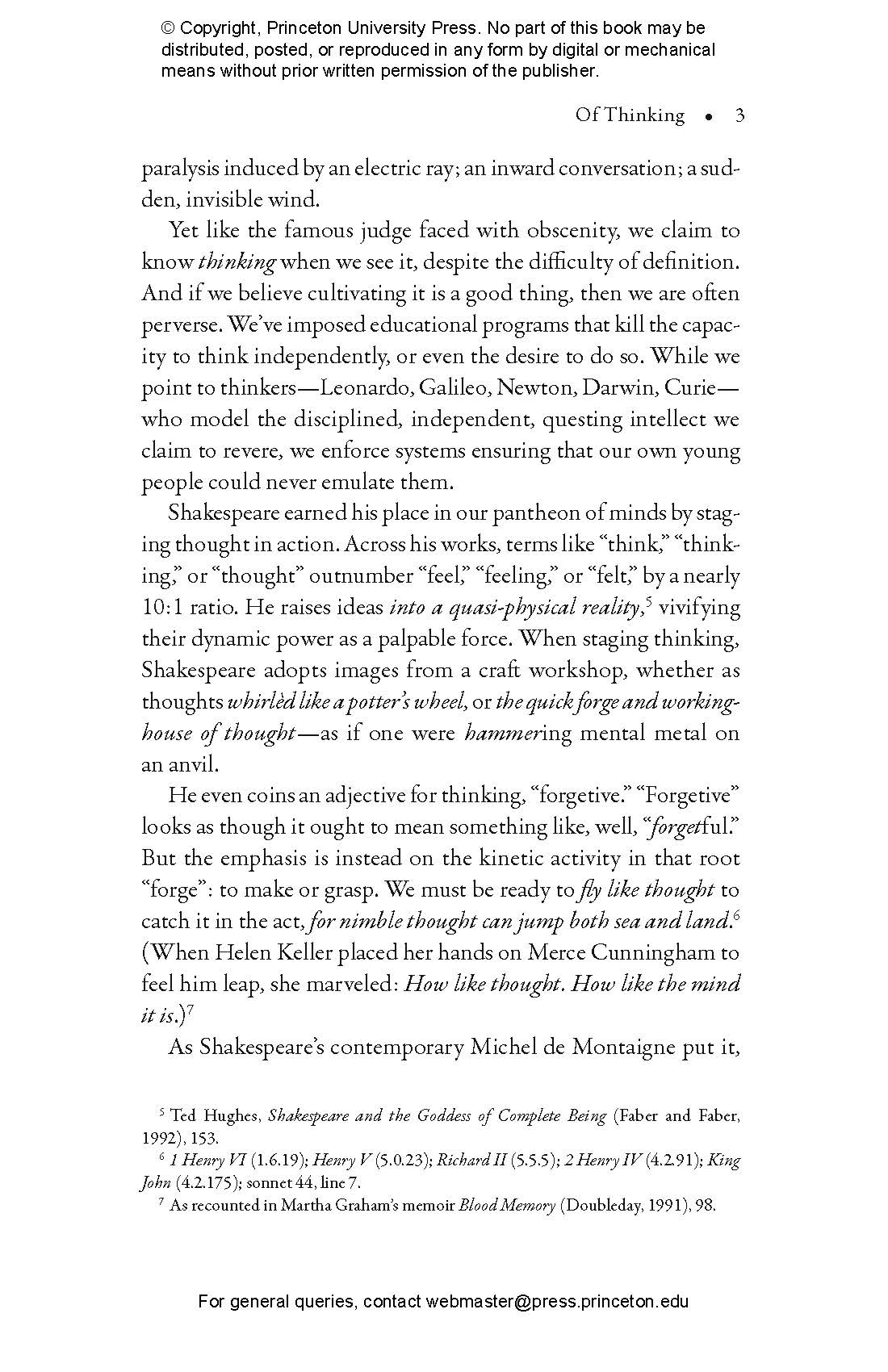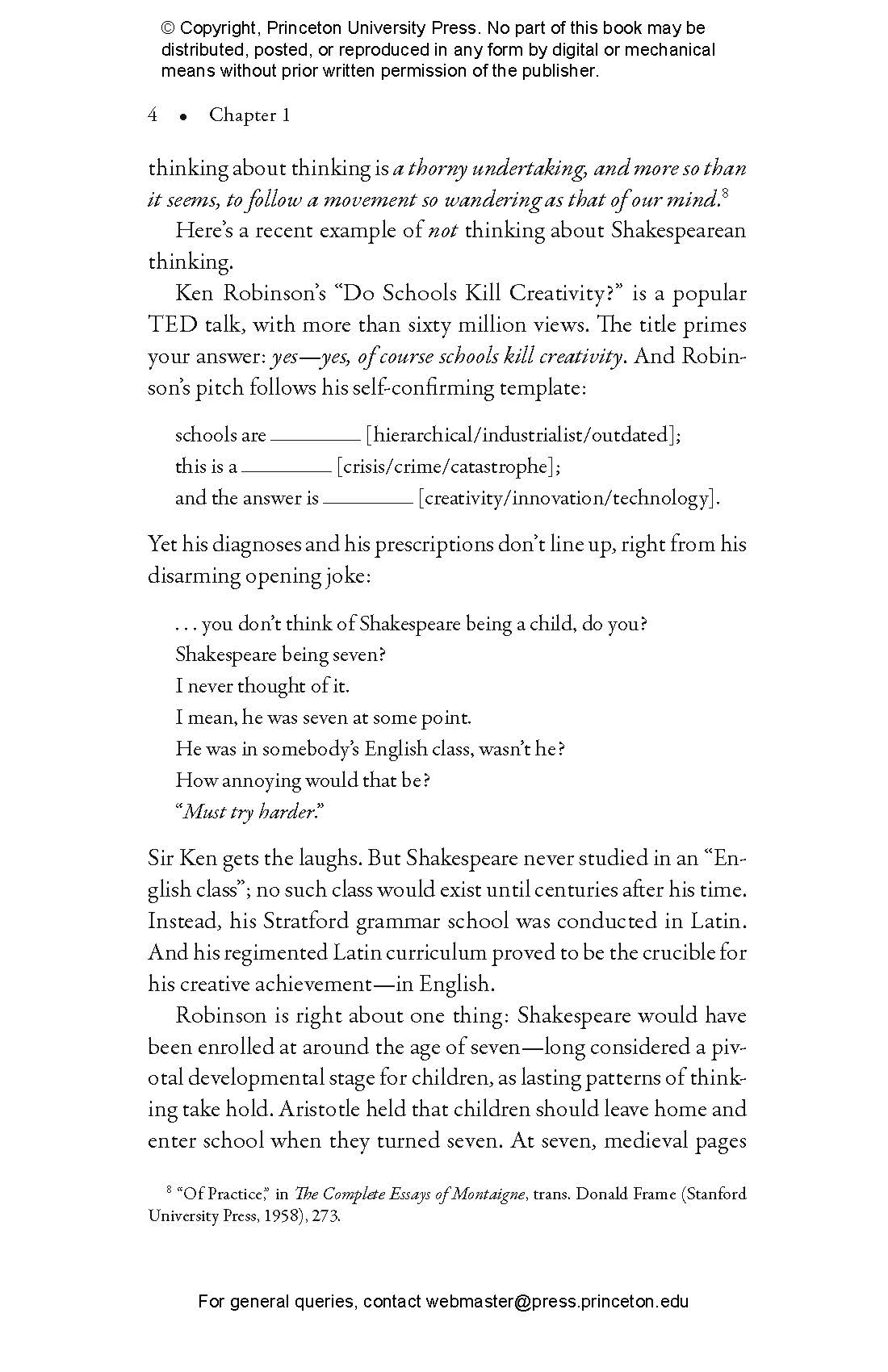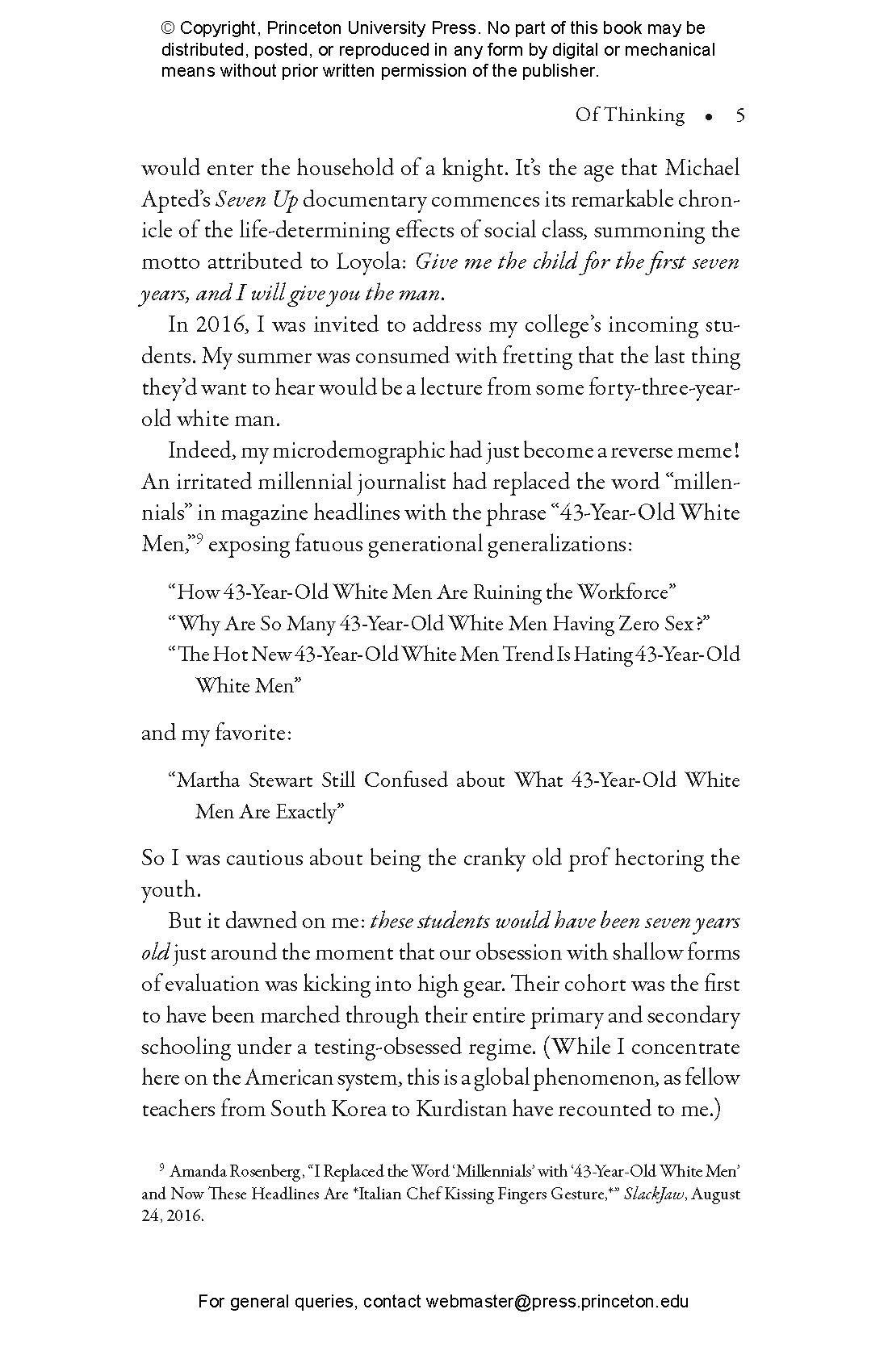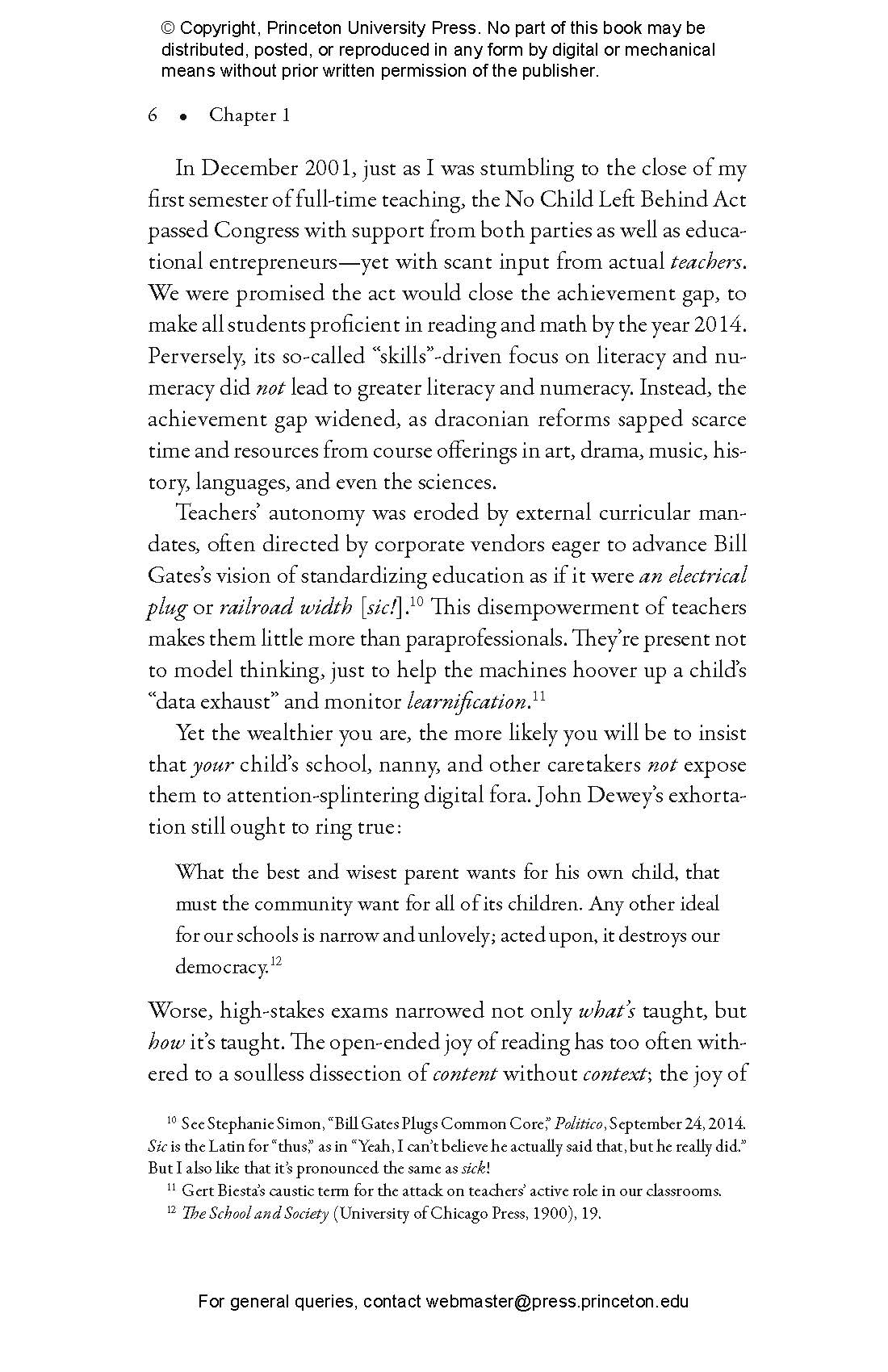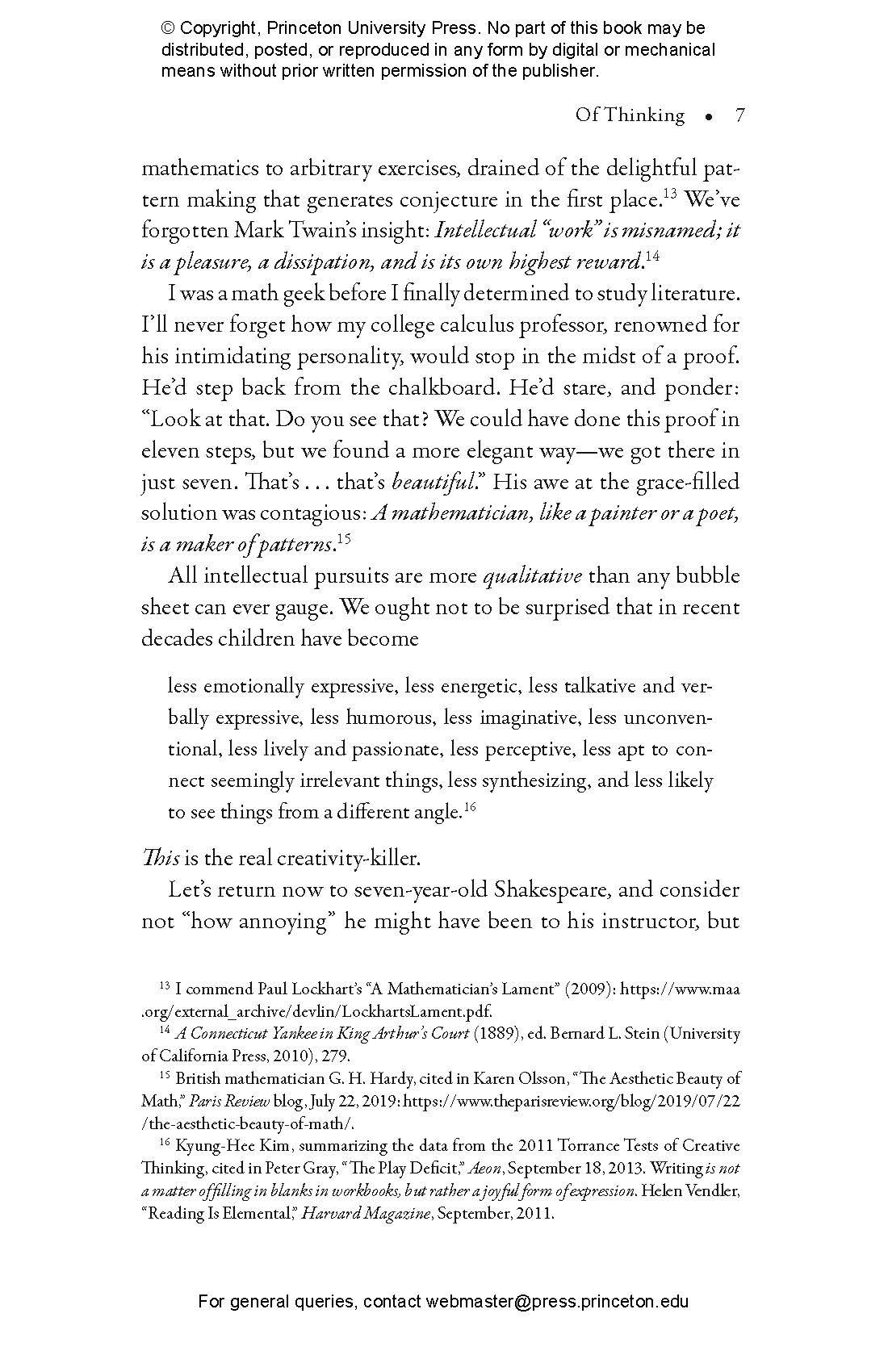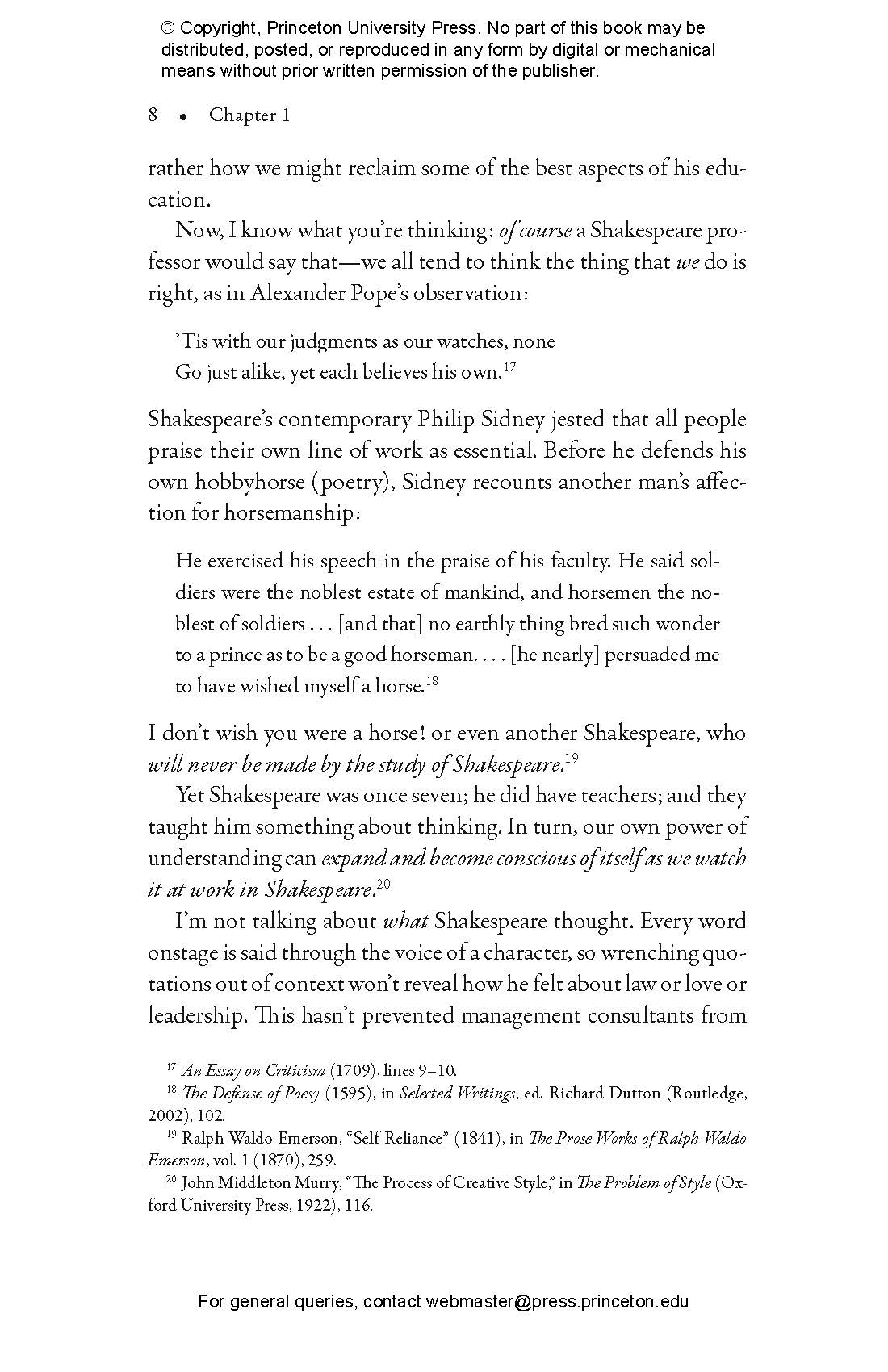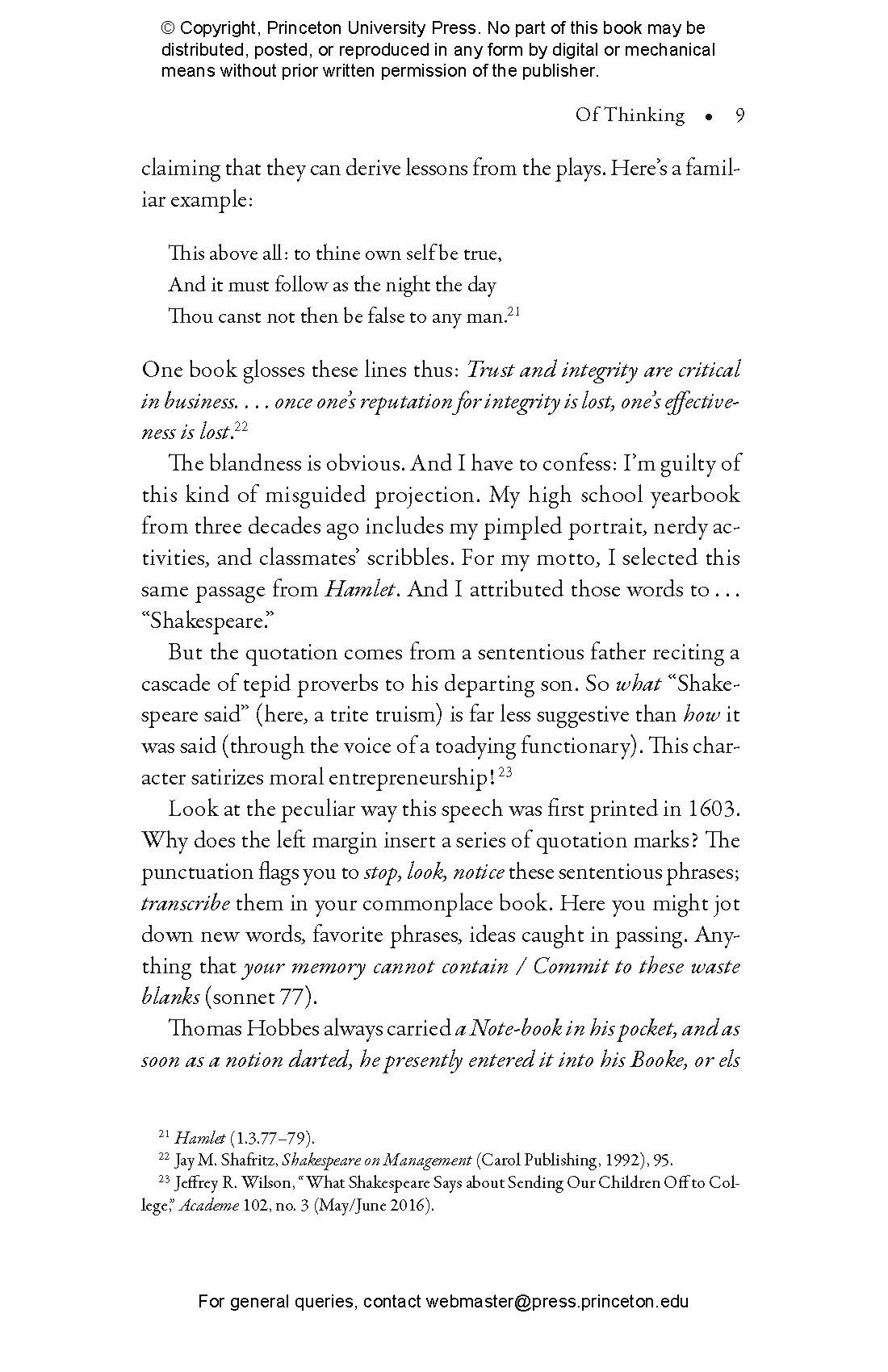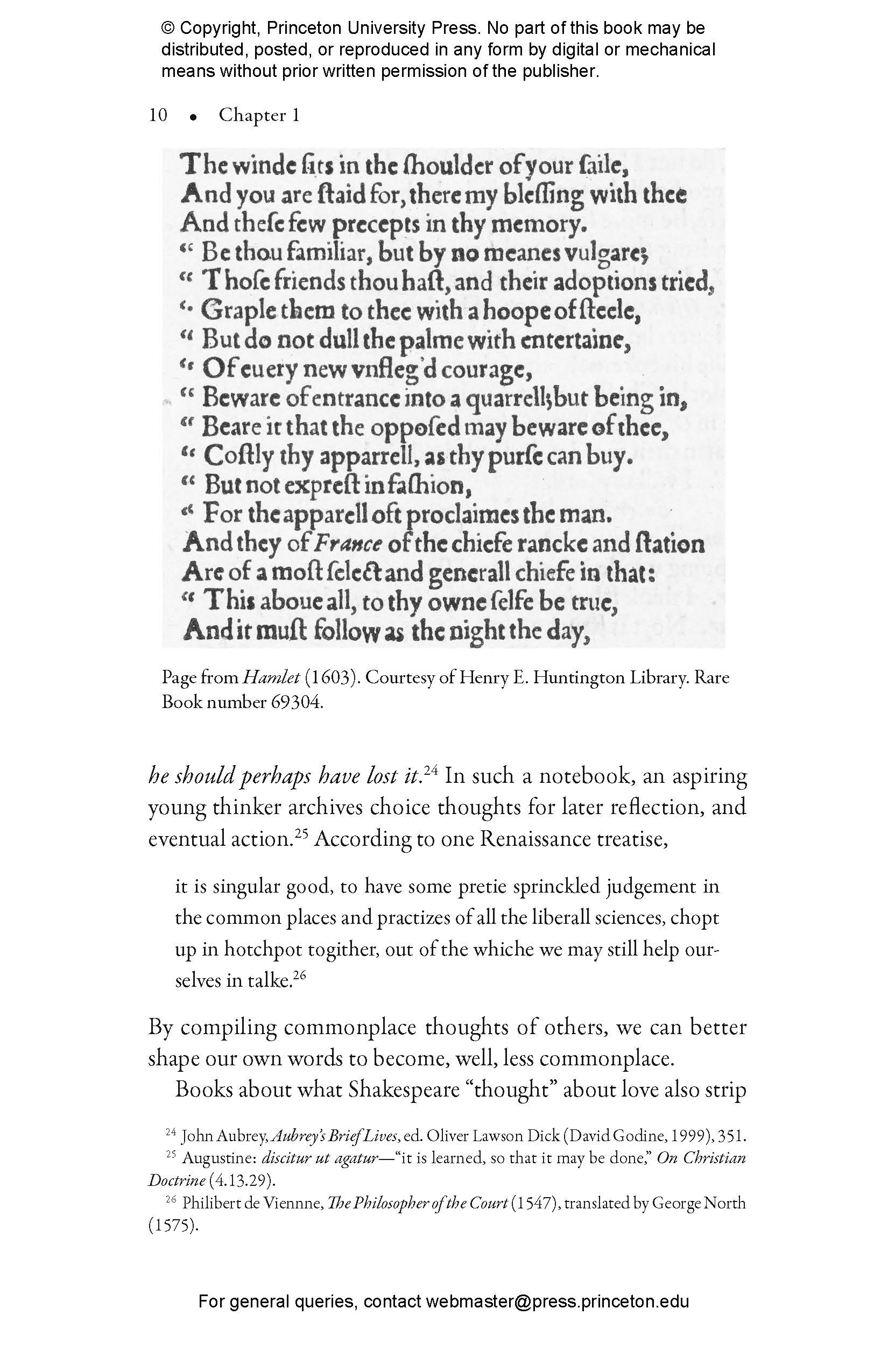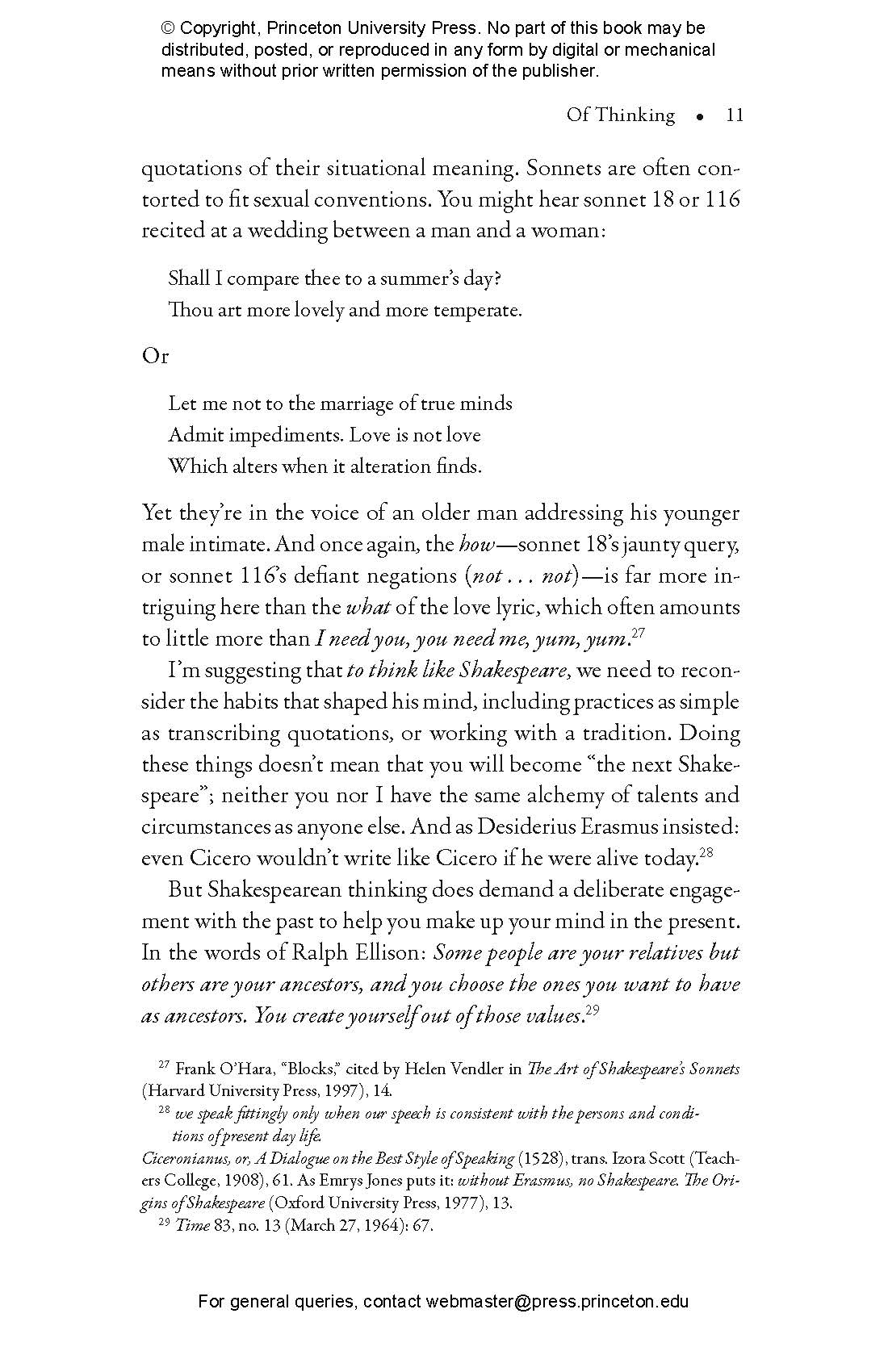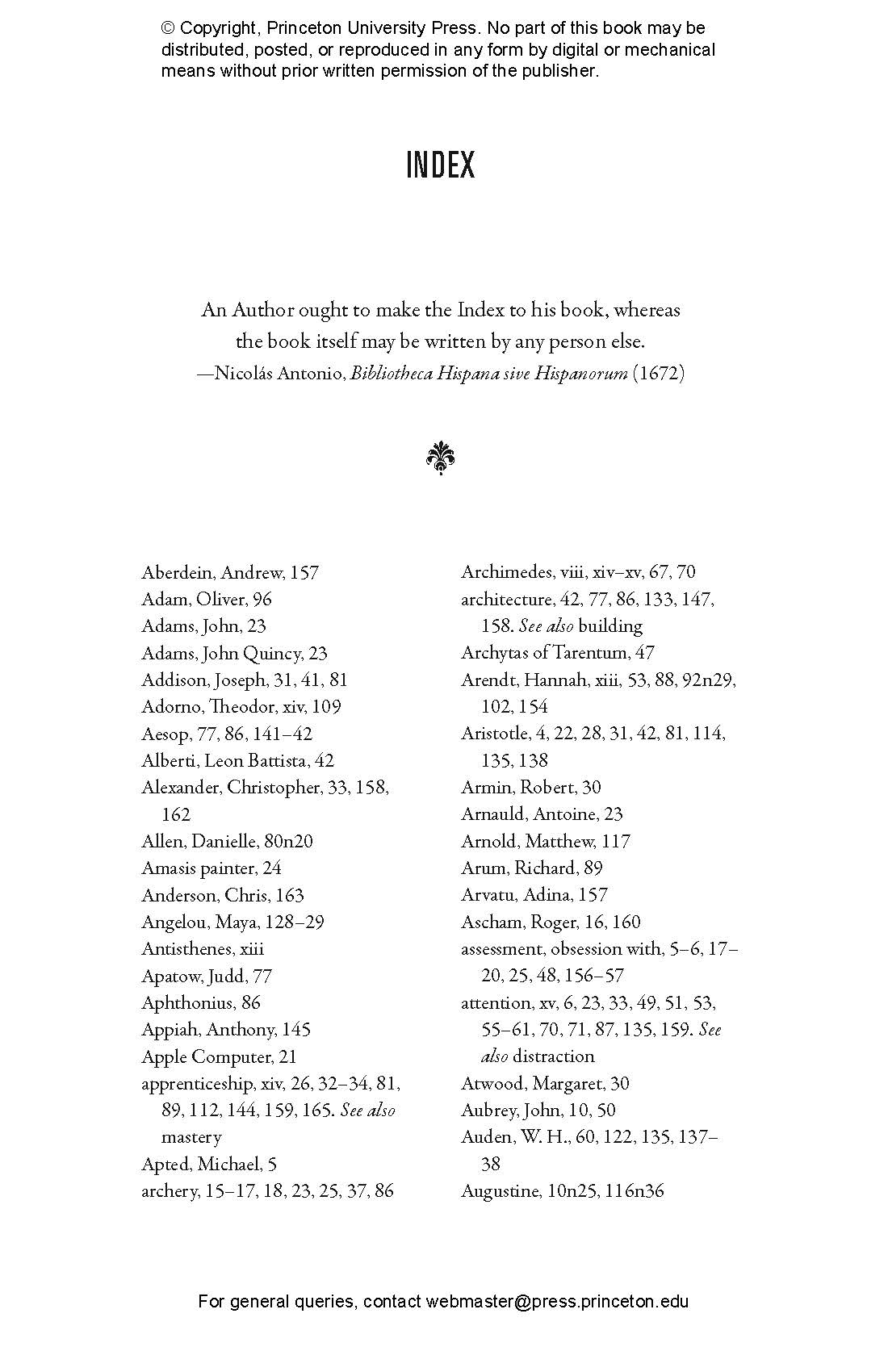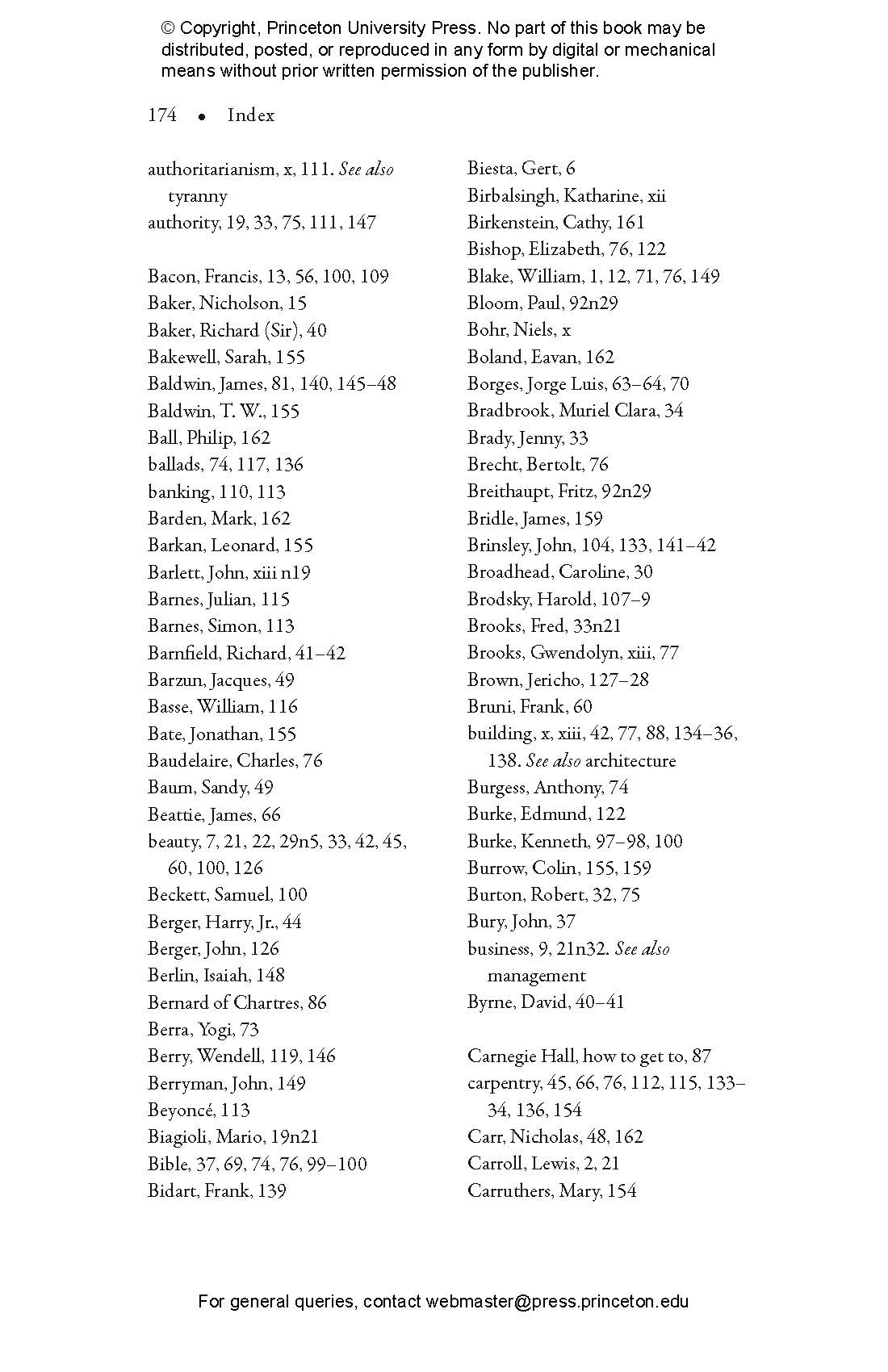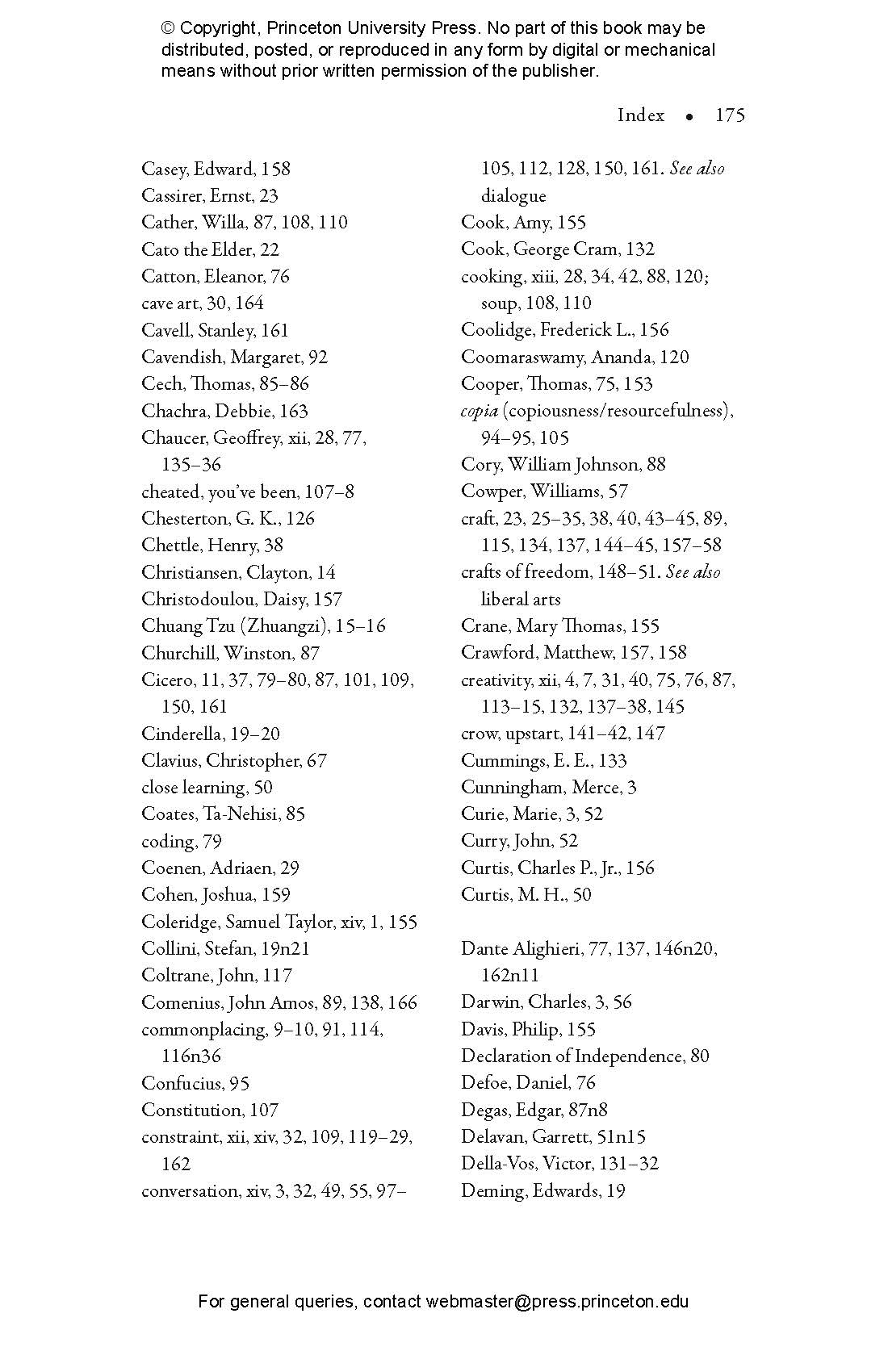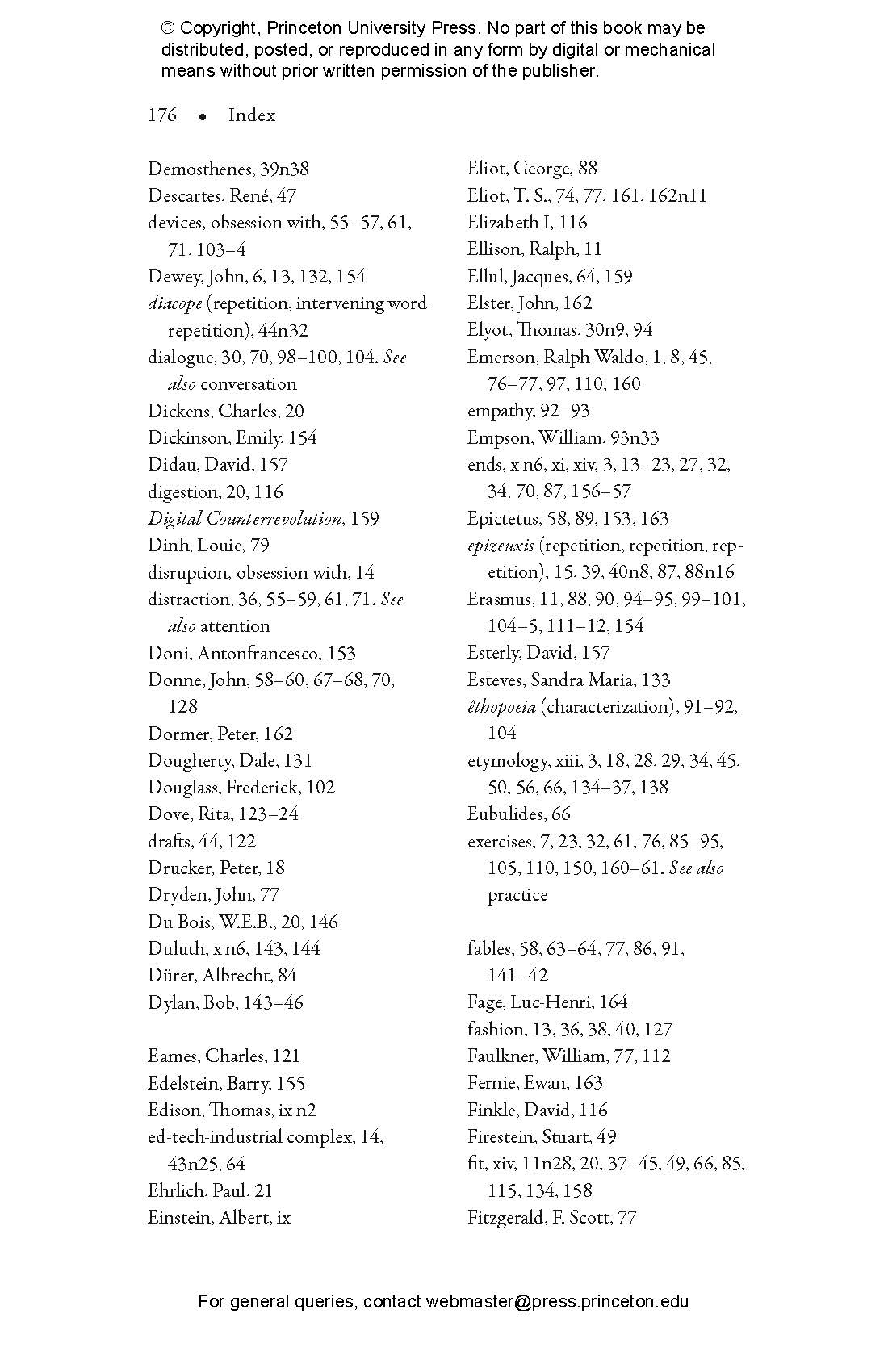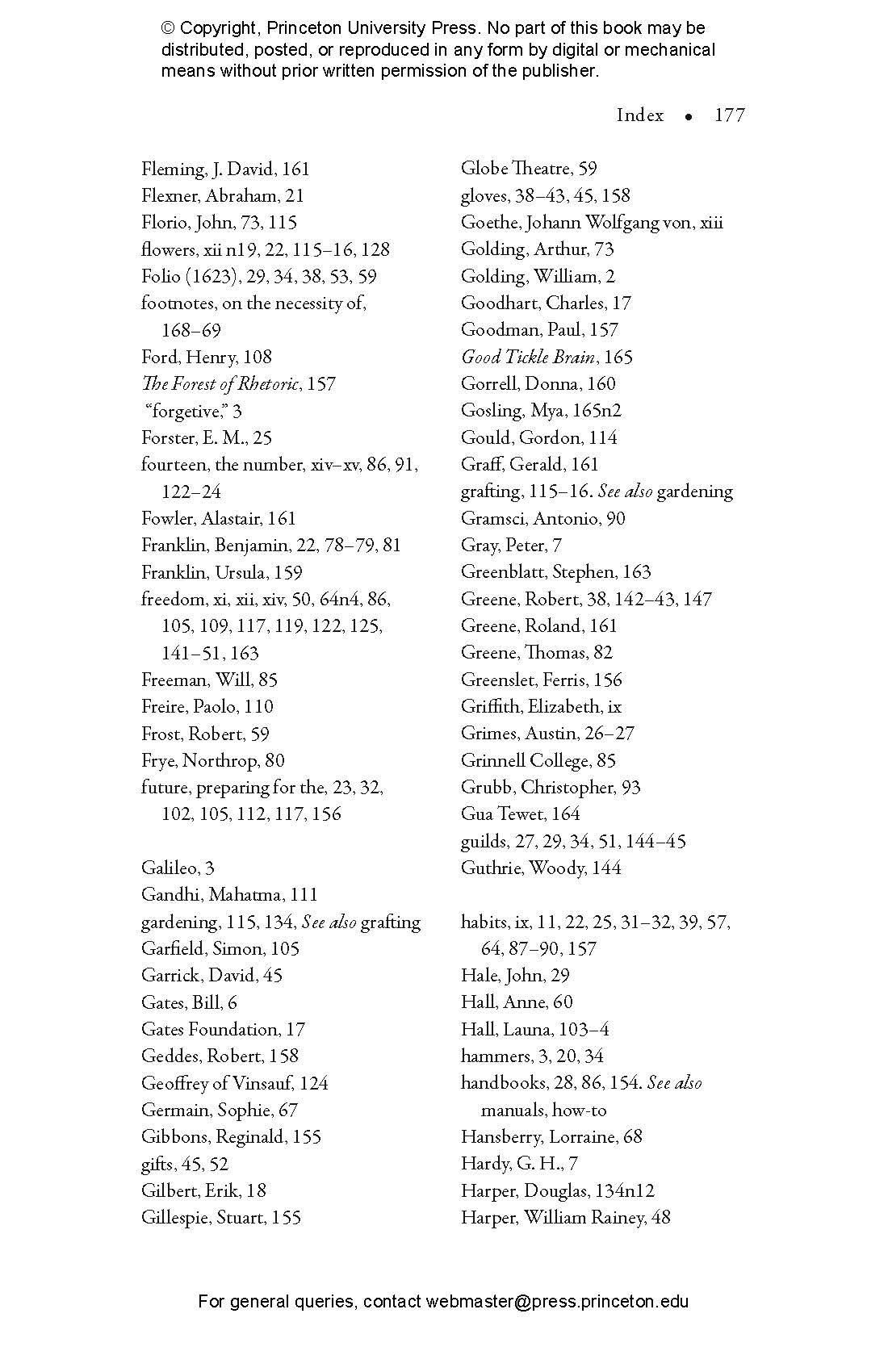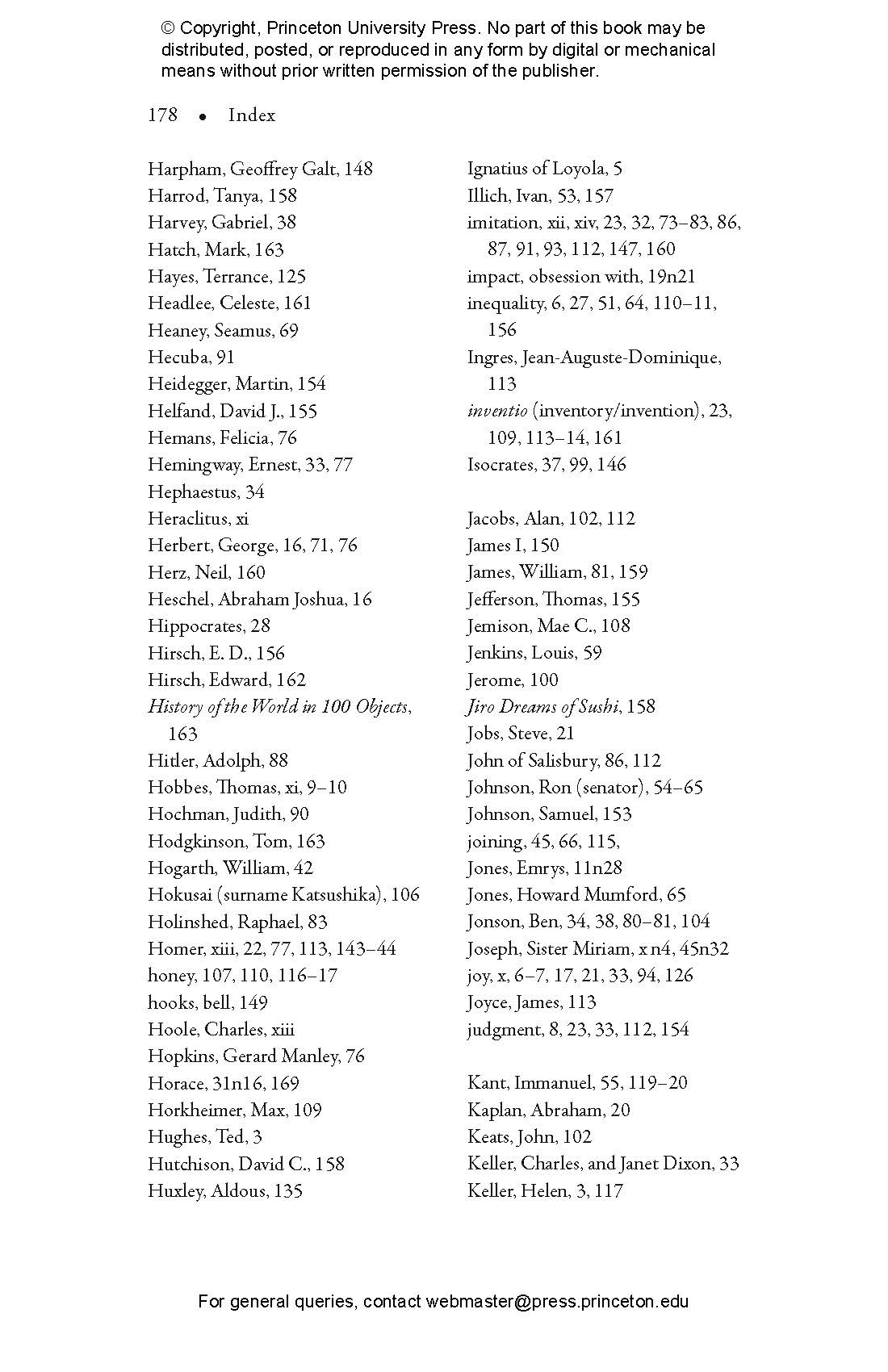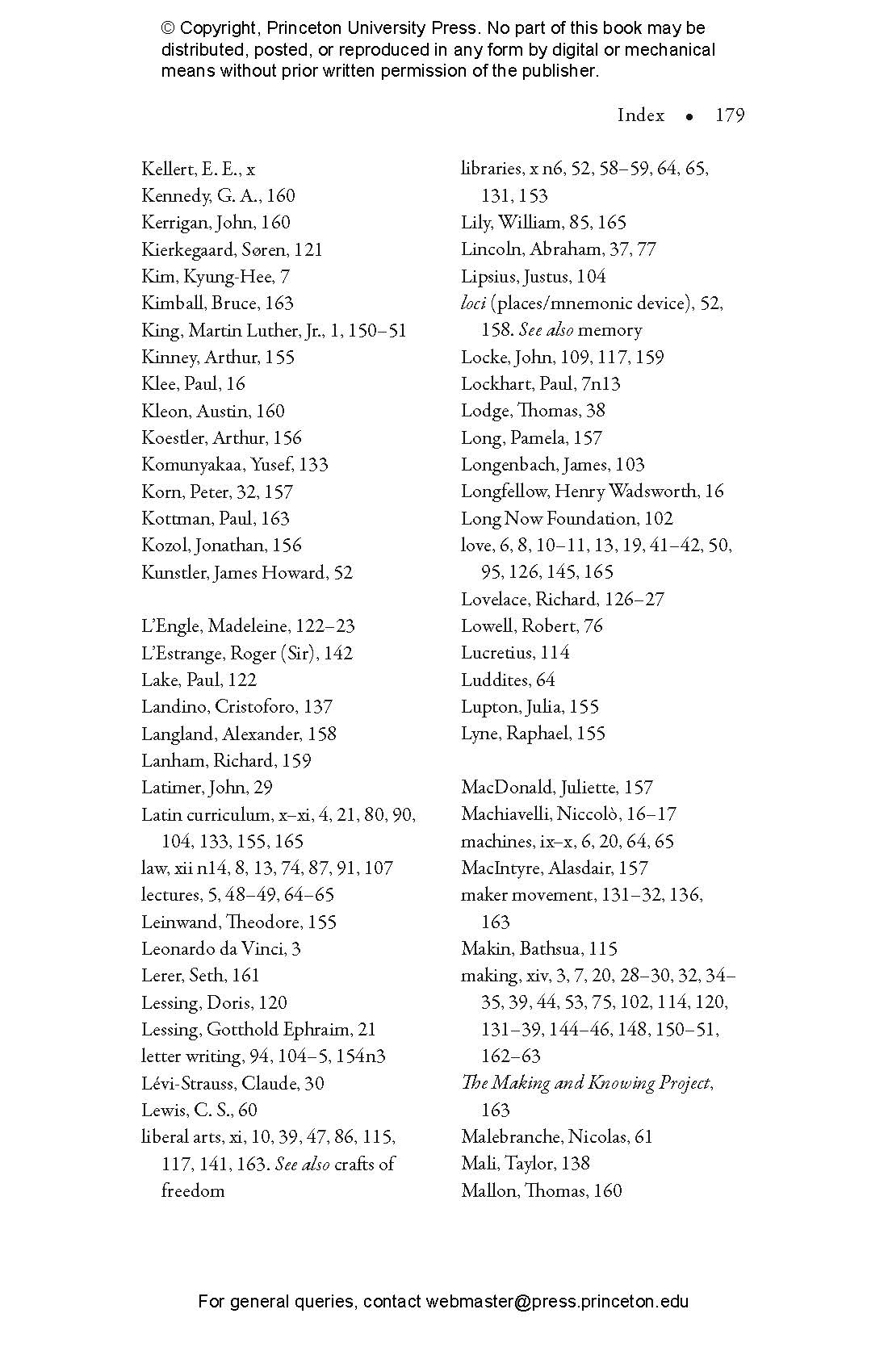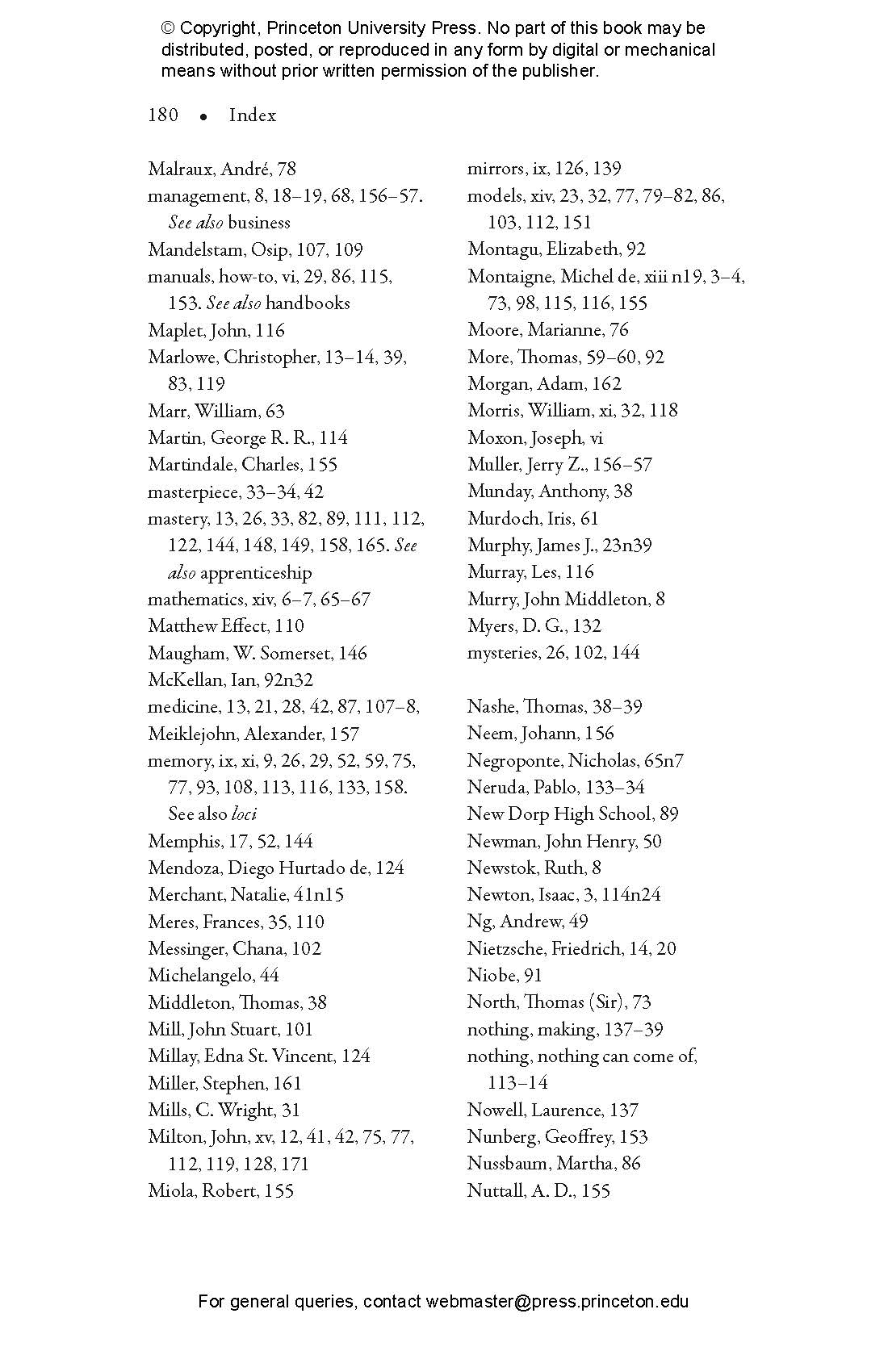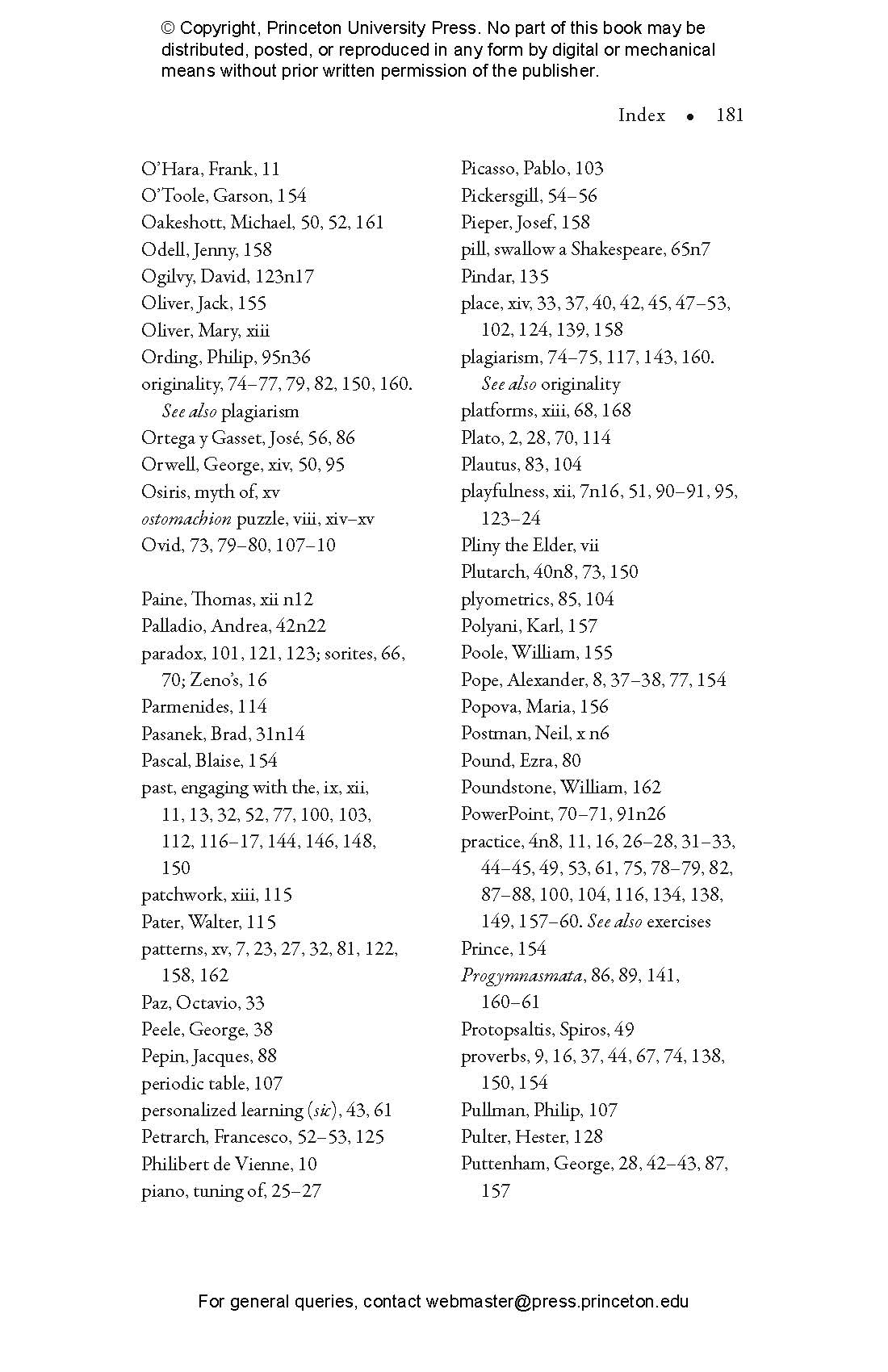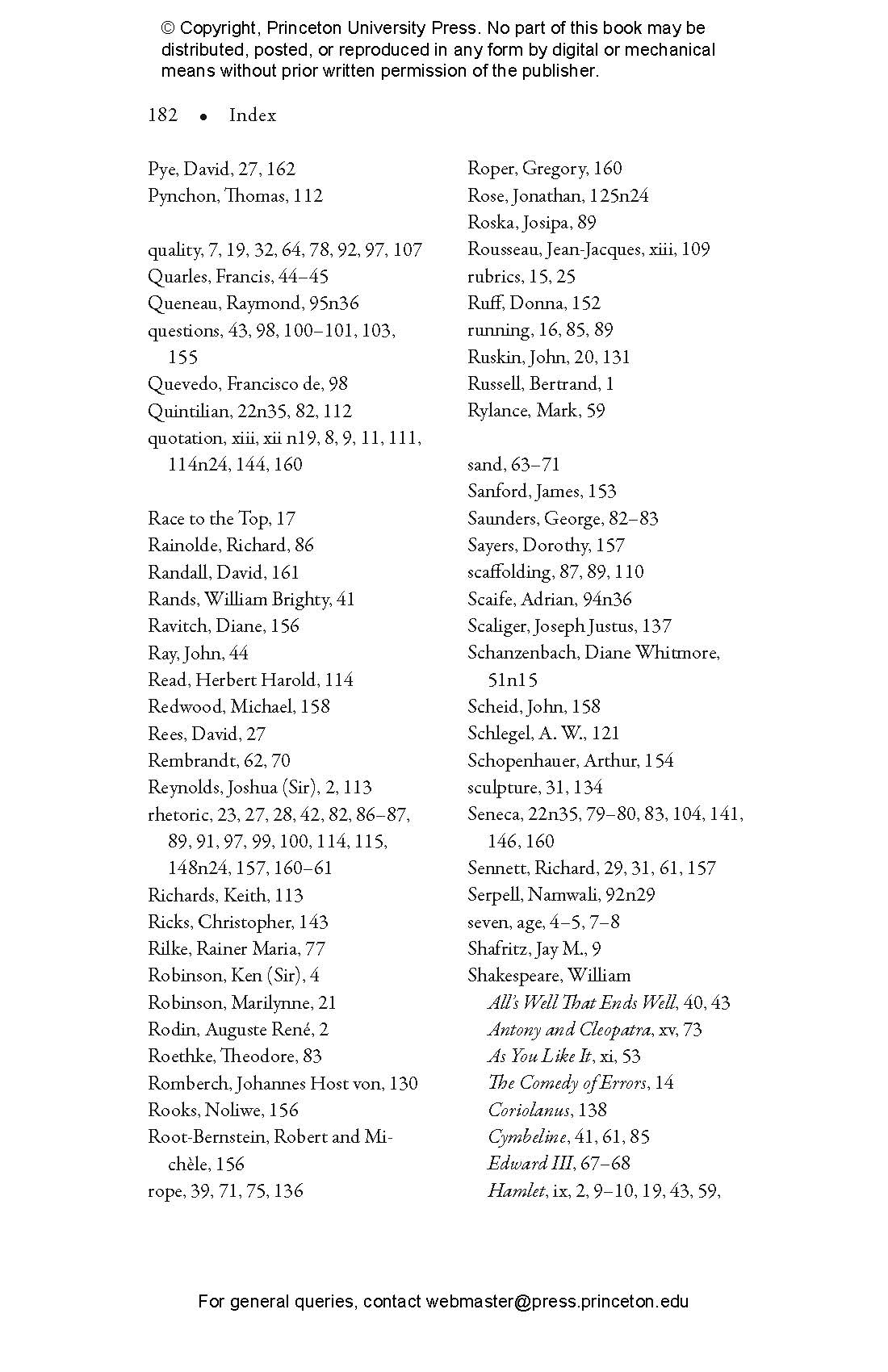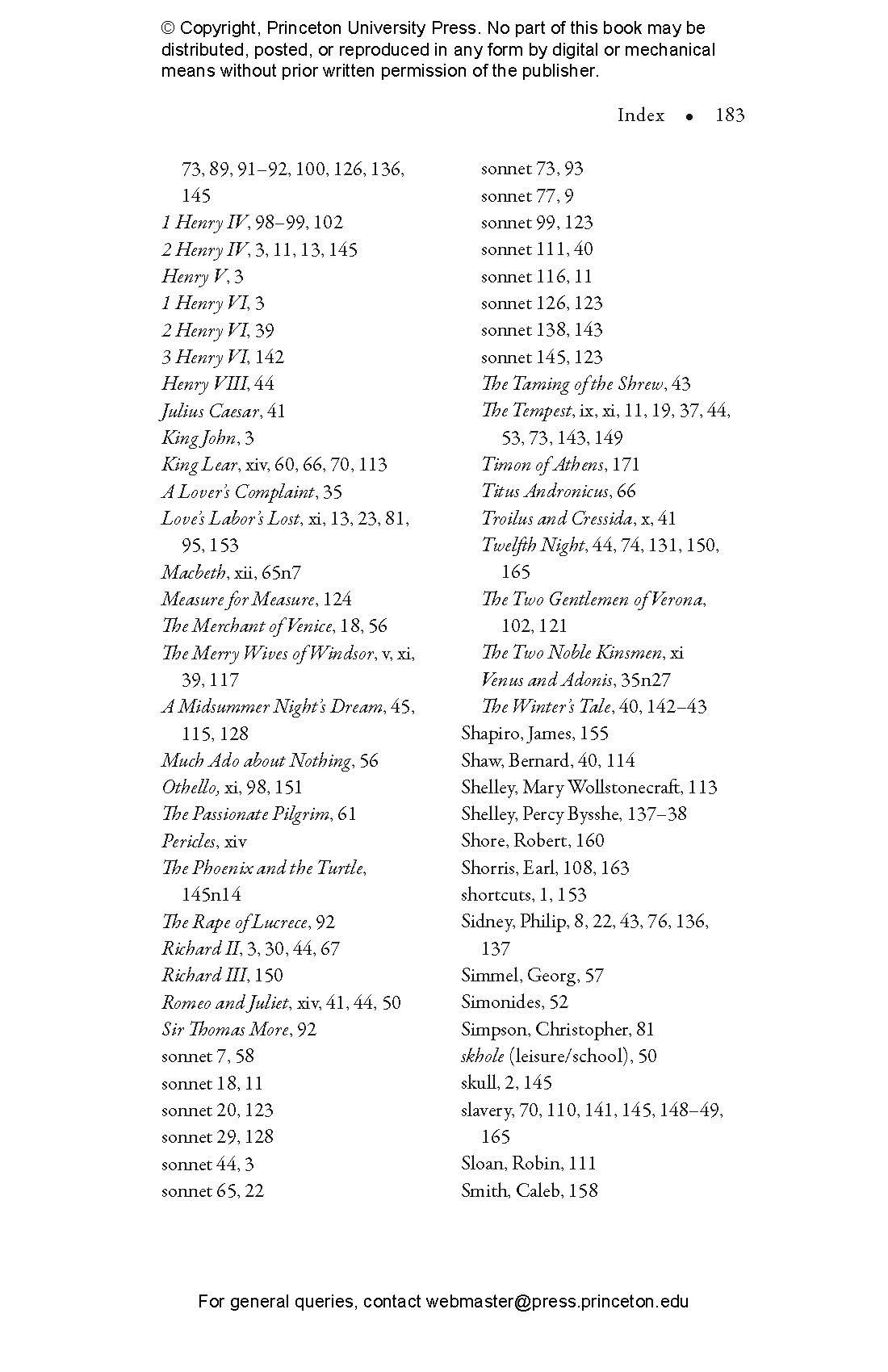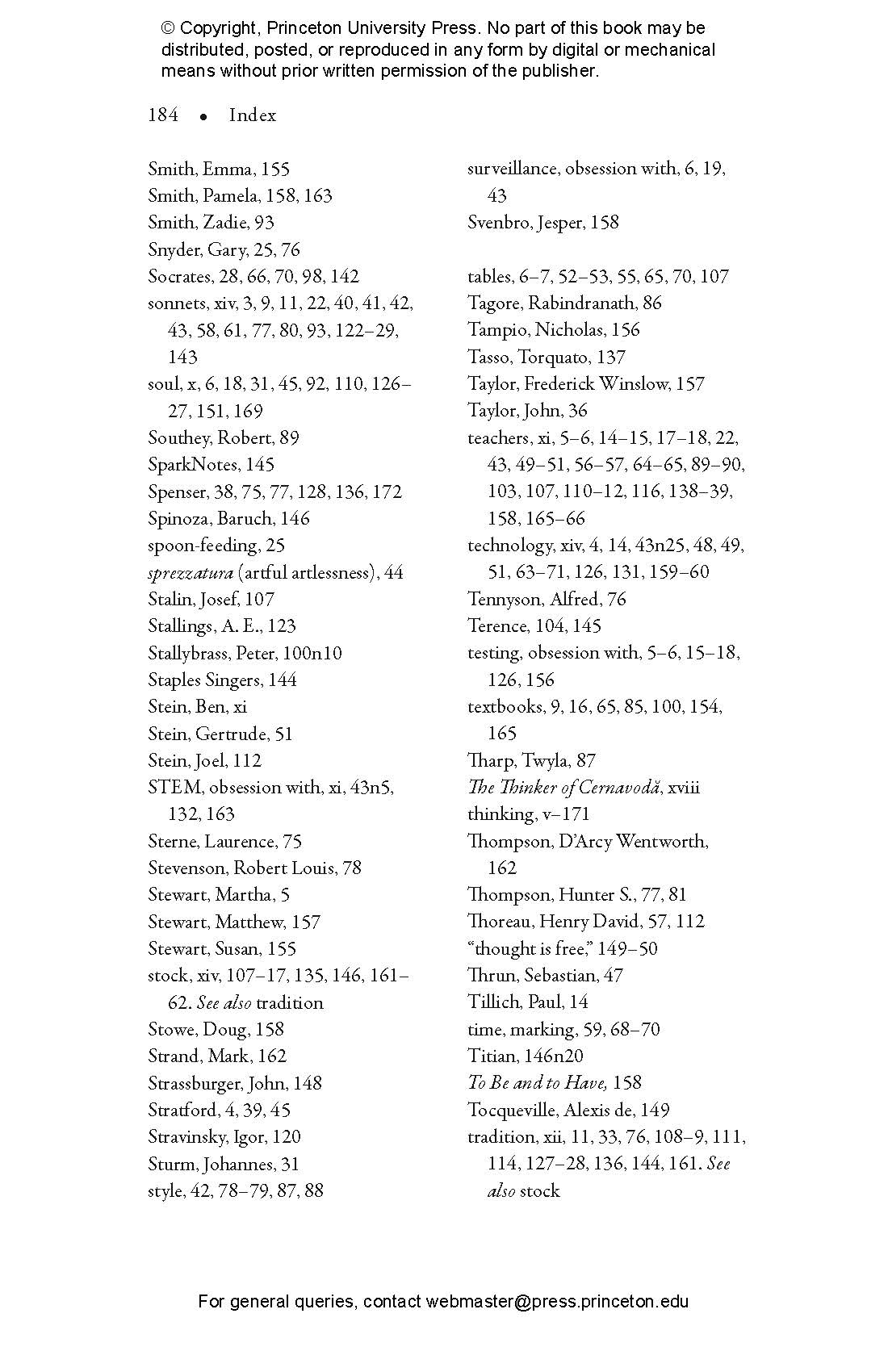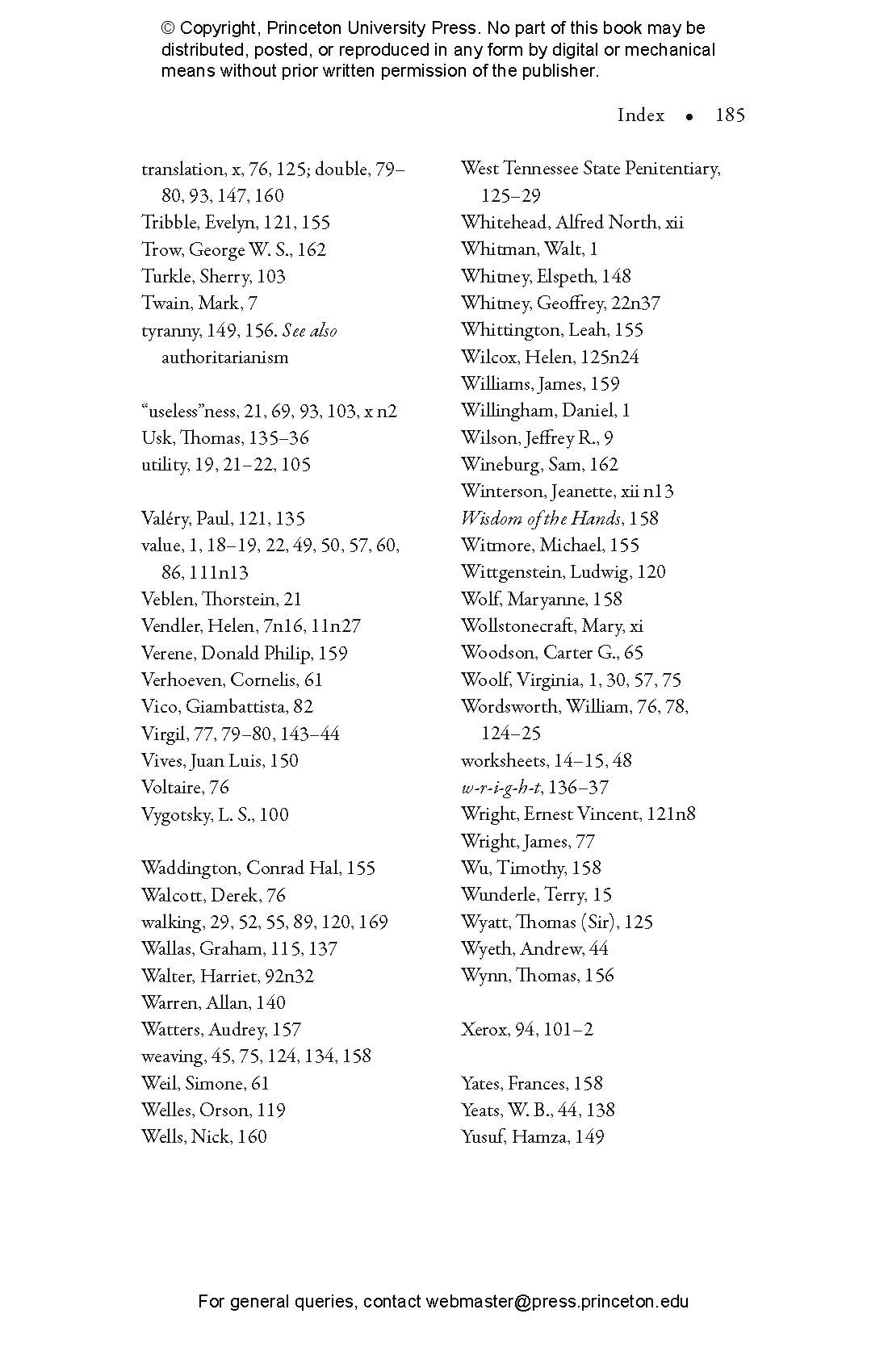"Clever. . . . An incisive commentary on the pitfalls of contemporary American education. . . . A smart and valuable new book."—Daniel Blank, Los Angeles Review of Books
"A wonderful new book."—Martha Barnette, public radio's A Way with Words
"Newstok argues persuasively for a return to some of the pedagogical methods that proved so effective in the 1500s."—Paul Muldoon, Times Literary Supplement
"With crisp, lapidary prose, Newstok writes authoritatively about the educational norms and practices that helped shape Shakespeare’s mind. . . . As Newstok essays the contours of a Renaissance education, he demonstrates with verve the effect it’s had on his own thinking. Put otherwise, the book is Newstok’s essay at thinking—and it’s a sterling attempt. . . . It will be of interest to any reader or teacher of Shakespeare—and it should be of interest to any serious reader or teacher. Watching Newstok think with Shakespeare is inspiring, and he proves an amiable guide."—Nathan M. Antiel, Principia: A Journal of Classical Education
"Eminently sensible. . . . An emphatic appreciation of just how valuable the pedagogical insights of four centuries ago remain today."—David McInnis, Australian Book Review
"Even in giving concrete, practical advice, Newstok displays a flexible virtuosity; he is a practiced craftsman at home in the workshop of language."—Joshua P. Hochschild, First Things
"A delightful book. . . . Intelligent, perceptive, readable, useful."—Matthew Stewart, University Bookman
"In 14 short, pithy chapters, Newstok shows how to recover the lost art of thinking."—Casey Chalk, American Conservative
"Newstok convinces the reader that Shakespeare was indeed a great critical thinker, and was more creative, not less so, than we initially thought. What’s more, his many real-life examples show that the creativity and meaningful scrutiny attributed to Shakespeare are not only beneficial, but possible for all of us. How to Think like Shakespeare is a unique analysis of both Shakespeare’s formative education and his art, and will be useful for both educators seeking to break from current, quantitative, test-based pedagogical strategies and for creatives aspiring to hone their craft. It is also an insightful manual on how we can all improve our ability to think deeper and think better."—Melissa Johnson, Teachers College Record
"This delightful book is an odd treasure. . . . [How to Think like Shakespeare is] an educational manifesto that should make for better people, better schools, colleges and universities, and better social relations between and among free citizens. There is a potential revolution in this odd treasure of a little book. Give it to some of your colleagues, if you think it isn't too late for them, but give it to all of your students. Let them know what they may have been missing – before it is too late."—Scott Crider, Ben Jonson Journal
"An engaging, witty, wide-ranging critique of contemporary pedagogical fads and a spirited provocation to return to classical and Renaissance models. . . . A book of heavy import, lightly tossed, it is at once instructive and amusing, elucidating why and how Shakespeare is good to think with."—Louis J. Kern, Key Reporter
"An absolutely delightful new book . . . a luscious and stimulating read."—Michael Cathcart, Stage Show, ABC Radio National
"Scott Newstok’s latest book, How to Think like Shakespeare, could be just the game changer the teacher (and administrator should have) ordered. . . . I couldn’t help but be won over by his earnest enthusiasm for the subject and ended up wanting to hear still more."—Robert M. LoAlbo, PlayShakespeare.com
"As a concise history of Western pedagogical development, How to Think like Shakespeare succeeds beautifully. . . . By the end of How To Think like Shakespeare, [Newstok] has us thoroughly convinced. To think and create effectively requires one to train and practice. By apprenticing ourselves to the past, we can ourselves become links in the glorious chain of human intellectual achievement."—Fernanda Moore, Chapter 16
"How to Think like Shakespeare is not the work of an activist militating for his cause but a thinker reveling in his work. Newstok reminds us that this work is, above all, fun, and the calling on display is infectious."—Karl Schuettler, Patient Cycle
"A lively and evocative new volume . . . a beautifully written, succinct description of educational principles derived from the best features of a renaissance education. The book is 'deliberately short,' but packed with quotations from the Bard and scores of great authors, all combined to make us think – and, with a little luck, to think more like 'our myriad-minded Shakespeare.' I highly recommend Newstok’s book for its pith, clarity, and insight – and the sheer breadth of its bibliography, including delightful footnotes, a bibliographic essay, and an index of Shakespearean cornucopia."—Rob Jackson, Institute for Classical Education
"How to Think like Shakespeare by Scott Newstok attempts to capture what education really is, as well as what it ought to be, while also arguing where our modern system falls short, creating a disconnection from a life that is well-ordered and well-lived. . . . In an age of so much technology and lack of time for thoughtfulness, a conversation with the past might prove helpful, or at the very least expand our vocabulary."—Axie Barclay, San Francisco Book Review
"Scott Newstok’s How to Think like Shakespeare: Lessons from a Renaissance Education really is a feel good book. A thick lather of the author’s enthusiasm, a comprehensive coverage of his subject matter, and the common sense inherent in his value judgments, work together to whip up a likeminded enthusiasm in his readers . . . I found the experience of reading Newstok nothing short of exhilarating"—Ian Lipke, Queensland Reviewers Collective
"A playful, quote filled romp into the mind of Shakespeare."—Fourteen Lines blog
"Part humanist manifesto, part commonplace book, [How to Think like Shakespeare] combines erudition and accessibility in an inviting package that is a joy to read."—Sententiae Antiquae Reviews
"How to Think like Shakespeare is a book that does not fit neatly into any established genre. Above all it’s about how to think and how to teach people to think, but it’s not a how to manual. At a time when higher education is stampeding toward everything shiny, new, and up to date, this book is deliberately backward looking. It looks unapologetically to the past for ideas, models, and habits of mind that Newstok contends are just as relevant now as they were in Shakespeare’s time."—Erik Gilbert, BadAssessment.org
"A clever new book."—Ian Warden, Canberra Times
"[How to Think like Shakespeare is] a serious history of thinking, and although serious, it’s very readable, and even playful. . . . How To Think like Shakespeare is a refreshing book and a stimulating read. The lively writing is a great treat, with things to smile at as you read."—Ralph Goldswain, No Sweat Shakespeare
"Great energy and clarity . . . [How to Think like Shakespeare] is entertaining throughout: the writer convinces us that he is learning with us, that we are learning with him… One of the great features of this eloquent, uplifting, enthusiastic yet realistic and beautifully produced book is its strong sense of moment."—Tony Voss, Shakespeare in Southern Africa
"In fourteen concise essays, Scott Newstok endeavors to diagnose and treat, if not to cure, the most persistent and pernicious ills of American education. . . . Newstok is always gracious and never polemical . . . [How to Think like Shakespeare’s] most remarkable trait is its form, which is a multi-layered figure for the kind of education that Newstok hopes to revive. . . . Teachers will be refreshed to learn about the commonsense principles and practices of their lost intellectual heritage."—Christopher D. Schmidt, Moreana
"What a joy it was to read a book about Renaissance literature and education that not only describes these things with full respect for their historical peculiarities, but also entertains the idea that they belong (or could belong) to us in the present, as equipment for living. . . . I thoroughly enjoyed this book and recommend that anyone who cares about teaching and learning read it again and again."—Sean Keilen, Cahiers Élisabéthains: A Journal of English Renaissance Studies
"Clever"—John Warner, Chicago Tribune
"The chief advantage of this book is the author’s replication of the Renaissance style he advocates. He makes his case with a hurricane of citations, references, and analogies that would have made Erasmus proud. . .This may be the strongest argument for rhetorical education: the Renaissance model may prepare students for the rough and tumble of social media far more effectively than the privatized, isolated pedagogy of the media based classroom."—John D. Schaeffer, Style
"A bracing, witty argument for a pedagogy that is at once old and new. . . . What he demonstrates in his playful, infectiously enthusiastic pages is a more modest and more proximate idea of freedom: the kind that appears in the sheer joy of reading and learning. That joy, and the freedom it brings, come when we care about what we study. And no one has ever cared—not really—about a test."—Samuel Fallon, Renaissance Quarterly
"Heavily but delightfully peppered with great quotes from great minds throughout history, How to Think like Shakespeare makes for a thoroughly enjoyable read. . . . through metaphor and wit, it makes just as compelling an argument as you’d expect from a mathematical proof. . . . All in all, this is a book I couldn’t do justice in any way in a simple review. Newstok has a deep and wide-ranging knowledge of literature, insight into why words have power, and an understanding of how to craft them. It presents valuable ideas in an engaging format, and will help you understand both our education systems and your own mind better."—Alexandru Micu, ZME Science
"How to Think Like Shakespeare playfully juxtaposes early modern and contemporary habits of thought by way of wide-ranging examples. . . . Thought-provoking and enjoyable. . . . it is the type of book that I would like to recommend to my university students to read for pleasure—precisely because it is brief and lively and could easily engender serious reflection about how we think."—Michael Cop, Parergon
"Newstok has a deep and wide-ranging knowledge of literature, insight into why words have power, and an understanding of how to craft them. [The book] presents valuable ideas in an engaging format, and will help you understand both our education systems and your own mind better. It will also give you the tools you need to guide the latter one better, and the insight as to where you want it to go. I thoroughly recommend you give this one a try."—Alexandru Micu, ZME Science
"Newstok explains how Shakespeare’s generation was educated, and how we can return to these methods in this surprisingly enjoyable read. He romps through the world’s greatest thinkers and artists, drawing on their words and a good deal of humor to make his case. Think of Newstok as an erudite guide giving you a themed tour of his commonplace book. This was a great read."—Andrew Perlot, The Monthly Reading List
“A lucid, human, terrifically engaging call to remember our better selves and a supremely unstuffy celebration of what’s essential.”—Pico Iyer, author of The Art of Stillness: Adventures in Going Nowhere
"How to Think like Shakespeare is a witty and wise incitement to shape our minds in old ways that will be new to almost all of us. By description and by imitation, Scott Newstok performs an improbable but delightful resurrection of five-hundred-year-old methods of engagement with words and thoughts. And hey: if they worked for Shakespeare, why shouldn't they work for you?"—Alan Jacobs, author of How to Think: A Survival Guide for a World at Odds
"A wonderfully light-footed and erudite investigation of education (and so much more), by means of Shakespeare (and so much more). Scott Newstok's book, a playful delight, also delivers a serious pedagogical punch."—Sarah Bakewell, author of How to Live: Or a Life of Montaigne in One Question and Twenty Attempts at an Answer
"Splendid, tremendously clever, and obviously inspired by a real love of Shakespeare. The whole basic idea is terrific, with wonderful passages to illustrate each new idea. Bravo."—Ken Ludwig, author of How to Teach Your Children Shakespeare
"Scott Newstok has written an urgent account of Renaissance education and our own impoverished equivalent. Learned, pacey, full of witty observation—I loved the idea of thinking as humanity's 'killer app'—it is a brilliant enactment of its own central ideas about the importance of liberated thinking and the constitutive pleasures of rhetoric. The chapter titles recall Bacon and Montaigne, essayists of Shakespeare's time: Newstok is their worthy successor."—Emma Smith, University of Oxford
"Scott Newstok's How to Think like Shakespeare is something to treasure. The book lays out a case for Shakespeare's vital connection to the lives we live today, opening the door to new ways of thinking and experiencing the world, which are essential to a life well lived."—Michael Witmore, director of the Folger Shakespeare Library
"Insightful and joyful, this book is a masterpiece. It invokes and provokes rather than explains. It reminds rather than lectures. It is different from any book I have ever read. And it works. Drawing on the past in the best sense of the term, it reminds us that we are part of a long tradition. Few books make the case for liberal education as creatively as this one does."—Johann N. Neem, author of What's the Point of College? Seeking Purpose in an Age of Reform
"Ranging widely from the classics right up to the present with apt quotations, all in service of ideas we lose at our peril, How to Think like Shakespeare winningly blends respect for tradition with thoughtful steps toward a more equitable society. It is the work of a Renaissance man in both senses."—Robert N. Watson, author of Cultural Evolution and Its Discontents: Cognitive Overload, Parasitic Cultures, and the Humanistic Cure
"Hugely illuminating and insightful. It should be obligatory reading for all involved in education.”—David Crystal, coauthor of Shakespeare's Words
“There are few recent books I can think of that make for more encouraging and salutary reading as a reminder of all that remains to be gained from literary studies, and conversely of all that might be lost from allowing it simply to fall by the wayside.”—Jeffrey Alan Miller, MacArthur Fellow
“A little gem of a book. It offers the pleasures of a modern commonplace book, brimming with so many choice thoughts that you feel the urge to scribble them down. The book is written with elegance and wit; the last chapter in particular is a tour de force.”—Indira Ghose, University of Fribourg, Switzerland


